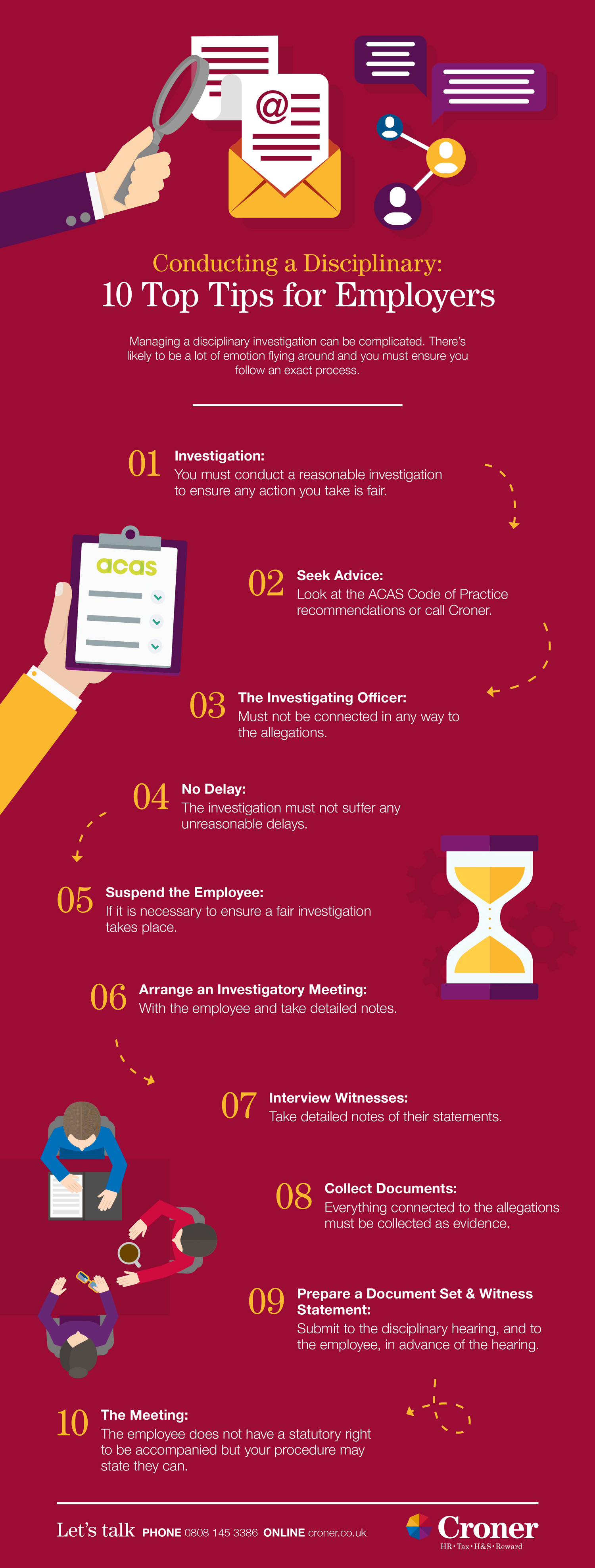Managing a disciplinary investigation can be complicated. There's likely to be a lot of emotion flying around and you must ensure you follow an exact process.
Conducting a Disciplinary
Add this infographic to your website by copying and pasting the following embed code:
<div style="clear:both"><a href="https://croner.co.uk/media/1875/Top-10-Disciplinary-Tips.pdf"><img src="https://croner.co.uk/media/1874/Top-10-Disciplinary-Tips.png" title="10 Top Tips for Conducting a Disciplinary" alt="10 Top Tips for Conducting a Disciplinary" border="0"></a></div><div>Courtesy of: <a href="https://croner.co.uk/">Croner</a>.</div>
10 Top Tips for Employers
- Investigation: You must conduct a reasonable investigation to ensure any action you take is fair
- Seek Advice: Look at the ACAS Code of Practice recommendations or call Croner
- The Investigating Officer: Must not be connected in any way to the allegations
- No Delay: The investigation must not suffer any unreasonable delays
- Suspend the Employee: If it is necessary to ensure a fair investigation takes place
- Arrange an Investigatory Meeting: With the employee and take detailed notes
- Interview Witnesses: Take detailed notes of their statements
- Collect Documents: Everything connected to the allegations must be collected as evidence
- Prepare a Document Set & Witness Statement: Submit to the disciplinary hearing, and to the employee, in advance of the hearing
- The Meeting: The employee does not have a statutory right to be accompanied but your procedure may state they can
Expert Support with Disciplinaries
With unrivalled experience in the industry, Croner’s Employment Law advisors are some of the most renowned and knowledgeable professionals in their respective fields. If you are currently managing a case of this nature and would like guidance from a Croner expert please call 01455 858 132.
Related resources
Categories
- Business Advice
- Contracts & Documentation
- Culture & Performance
- Disciplinary & Grievances
- Dismissals & Conduct
- Employee Conduct
- Employment Law
- Employment Rights Bill
- End of Contract
- Equality & Discrimination
- Health & Safety
- Hiring & Managing
- Leave & Absence
- Managing Health & Safety
- Moving
- Occupational Health
- Pay & Benefits
- Recruitment
- Risk & Welfare




